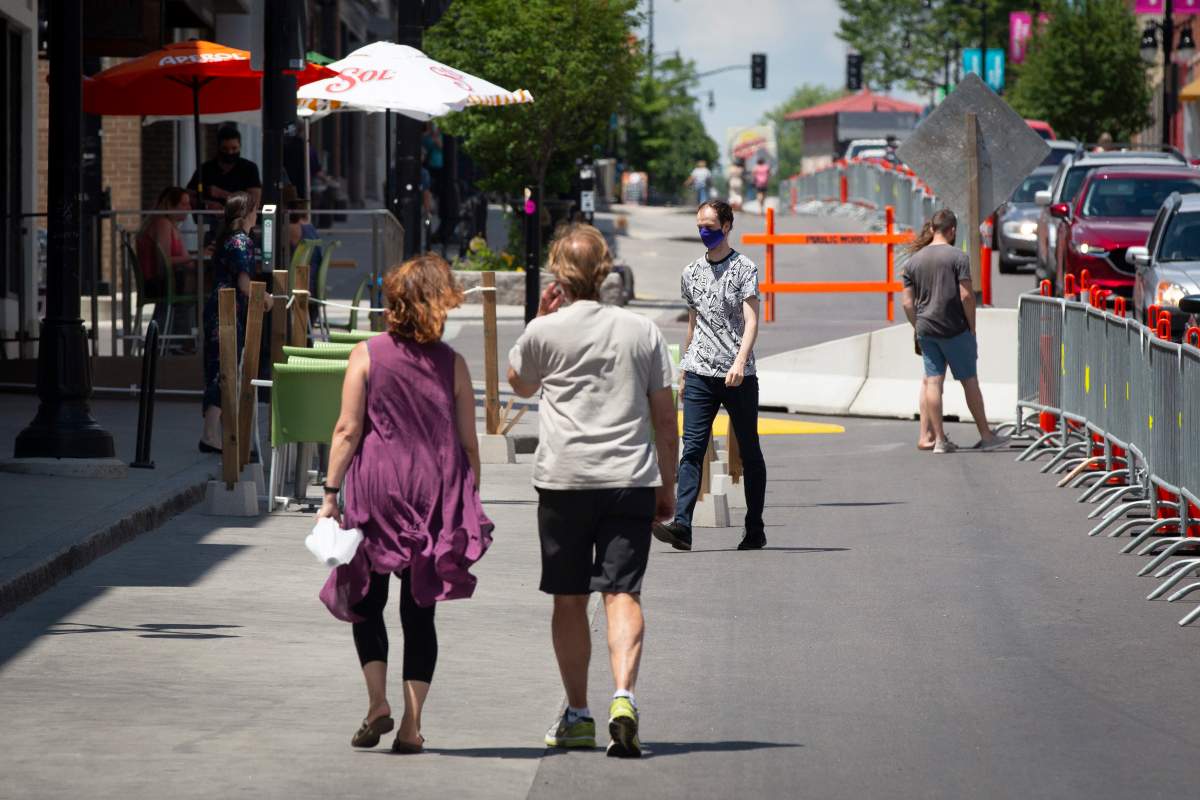The new executive director of the Downtown Kingston BIA is facing some backlash on social media after sending out a letter to business owners about street crime, panhandling and loitering of “street involved” individuals.

The letter was sent to downtown Kingston businesses on Aug. 11, penned by Marijo Cuerrier, the new executive director of the downtown business association. It was then posted to Instagram by a local page called “The Real Ktown,” which describes itself as a page that “exposes the cracks in the Limestone” city.
Cuerrier told Global News in an interview Tuesday that the letter was meant as an introduction to member businesses, one that addresses the concerns of downtown business owners dealing with an increased number of vulnerable people on the streets during the COVID-19 pandemic.

Get breaking National news
But several aspects of the note rubbed some people the wrong way, including that business owners discourage their customers from giving money to panhandlers.
“Kingston has a great food program and social service support system in place, therefore there is no need to supply people with additional money, food or drink,” Cuerrier’s letters says.
“Many panhandlers have homes and other supports in place. Supporting them with spare change or food enables them to continue loitering and panhandling, rather than seeking appropriate support and in some cases could be enabling illegal drug use.”
Local housing advocate Chrystal Wilson said that section of the letter did not reflect the actual reality of supports for vulnerable populations on Kingston’s streets.

“To suggest that there’s sufficient supports available in the system already, there is not. We have over 400 people in Kingston experiencing homelessness; the shelters are often over-capacity,” she said.
Cuerrier says her goal was not to stigmatize people living and spending time on Kingston’s downtown streets, but to suggest temporary solutions for local business owners while the City of Kingston works on larger ones, such as creating more housing.
“This is a community challenge, including vulnerable communities. I’m just the one that started the conversation with members, and that started a conversation with some people who didn’t agree with my letter,” she said.
Still, the letter was well-received by some downtown business owners, like Laurie Davey-Quantick, the owner of Verde, an environmental general store.
She said she was pleased to see the letter address some of the issues downtown businesses have been facing, and says that more housing, mental health and addiction support has to come quickly.
“I think that we as a community have really let a whole segment of society down. We are not doing them any assistance by our solutions that we’ve had thus far,” she said.
Cuerrier says she is open to re-writing the letter under the of guidance those like Wilson who work with vulnerable communities in the city.
Wilson already has some ideas of how the BIA could engage with this segment of the population in the downtown core.
“I think it’d be great if the BIA could help create a distribution flyer to give to people experiencing homelessness so they know where to receive services,” Wilson said.
Everyone involved does agree on one thing: more work needs to be done to help those both living and working downtown, and it will take more than the BIA and local businesses to address these problems.
–With files from Global News’ Alexandra Mazur.








Comments